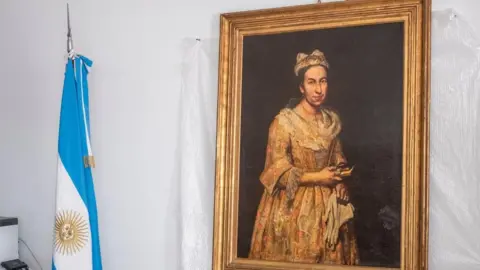Colombian ex-President Álvaro Uribe has received a 12-year sentence to serve under house arrest after being found guilty of witness tampering and fraud. At 73 years old, Uribe becomes the first former leader in the nation’s history to be sentenced for a crime, raising eyebrows across political and judicial circles. Alongside house arrest, he faces a $578,000 (£435,000) fine and is barred from holding public office.
Uribe has consistently denied the allegations against him, asserting that the case aims to undermine his significant role as a voice for the democratic opposition. In a courtroom in Bogotá, he expressed his intent to appeal the conviction, stating that it was a politically motivated move.
The legal proceedings against Uribe have stretched over 13 years and include testimony from two imprisoned ex-paramilitaries who accused Uribe’s former lawyer, Diego Cadena, of attempting to bribe them for favorable testimony. Cadena, currently facing similar charges, denied the accusations and presented testimony on Uribe’s behalf, alongside other ex-paramilitaries.
The conviction has brought Uribe's complex relationship with the United States into the spotlight. U.S. Secretary of State Marco Rubio criticized the Colombian judiciary, claiming it has been manipulated against Uribe, arguing that Uribe's commitment to fighting for his country should not have led to legal repercussions.
Uribe, who held presidency from 2002 to 2010, is a polarizing figure in Colombia. While he garnered praise for his strict stance against left-wing guerrillas, particularly the Farc, he has also faced severe criticism for his alleged connections to right-wing paramilitary groups and his failure to address issues of poverty and inequality in the country.
Despite the signing of a peace agreement with Farc by his successor in 2016, violence from disarmed factions continues to plague Colombia, leaving a complex legacy for Uribe and his administration.




















